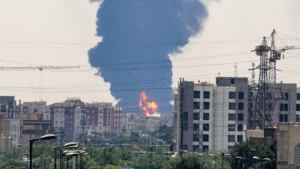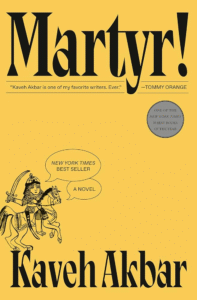The Two-Week Gambit: Deconstructing Trump’s Deadline on Iran
Introduction: A Volatile Announcement
The current escalating conflict between Israel and Iran has pulled the Middle East, and indeed the world, into a vortex of uncertainty. Amidst this volatile landscape, a recent pronouncement from former (and potentially future) US President Donald Trump has injected another layer of complexity: a “two-week deadline” for deciding whether the United States will directly join Israel in striking Iran. This statement, while seemingly definitive, immediately prompts scrutiny, not just for its immediate implications, but also for its echoes of Trump’s well-documented and often unconventional approach to foreign policy and the use of deadlines.

The Dual Interpretation: Diplomacy vs. Deception
At face value, a two-week deadline suggests a period of intense deliberation, a weighing of options, and perhaps a final diplomatic push. Indeed, White House press secretary Karoline Leavitt cited a “substantial chance of negotiations” with Iran as the reason for this pause, implying that diplomacy is still on the table. This offers a sliver of hope for de-escalation, a sentiment that aligns with European efforts to mediate a resolution. However, the timing and nature of such deadlines from Donald Trump’s past patterns invite skepticism. Throughout his presidency, Trump frequently employed deadlines and ultimatums in international relations, only to often soften, extend, or even reverse them, leading to a perception of unpredictability and a “negotiating by chaos” style.
Analysts are already offering various interpretations of this two-week gambit. One prevalent theory is that it’s a strategic ploy to deceive Iran. By signaling a potential pause for diplomacy, Trump might be attempting to lull Iran into a false sense of security, encouraging them to let their guard down, only to then launch a surprise strike. This aligns with comments from some experts who suggest it could be a “clever ruse” to mask an imminent decision to intervene. Furthermore, the two-week window could serve a practical military purpose, allowing the U.S. to reposition assets, such as bringing a second aircraft carrier into the region, thereby bolstering its capabilities for any potential direct engagement and giving Israel more time to neutralize Iranian air defenses, particularly around fortified nuclear sites like Fordo.
Coercive Leverage: Forcing a Hand?
Another perspective is that the deadline is indeed a genuine, albeit high-stakes, attempt to create leverage for negotiations. By putting the specter of direct U.S. military involvement on the table, Trump might be hoping to force Iran to the negotiating table with a weakened position, especially after sustained Israeli strikes on their nuclear infrastructure. His previous pronouncements, ranging from demands for “unconditional surrender” to urging the immediate evacuation of Tehran, contribute to this coercive pressure. The ultimate goal, from this viewpoint, would be to compel Iran to abandon its nuclear ambitions entirely.
The Trumpian Pattern: Unpredictability and Its Risks
However, the efficacy and sincerity of this deadline remain highly questionable given Trump’s track record. His foreign policy during his first term was often characterized by abrupt decisions, frequently announced via social media, with little prior consultation with allies or even his own advisors. Deadlines concerning trade disputes, troop withdrawals, and other international issues were often fluid, subject to change based on perceived concessions or simply a shift in his public rhetoric. This pattern of unpredictability, while perhaps intended to keep adversaries off-balance, also carries the risk of alienating allies and creating an environment of profound global instability.
Conclusion: A Moment of Global Suspense
Ultimately, “Trump’s two-week deadline” is a multifaceted declaration. It could be a genuine window for diplomacy, a calculated military maneuver, a psychological tactic to pressure Iran, or a combination of all three. What is clear is that it reflects Donald Trump’s unique and often unsettling approach to foreign policy, one where rhetoric, deadlines, and a penchant for the dramatic play a central role. As the clock ticks down, the world watches with bated breath, knowing that the ultimate decision, and its consequences, could profoundly reshape the geopolitical landscape of the Middle East and beyond.



















